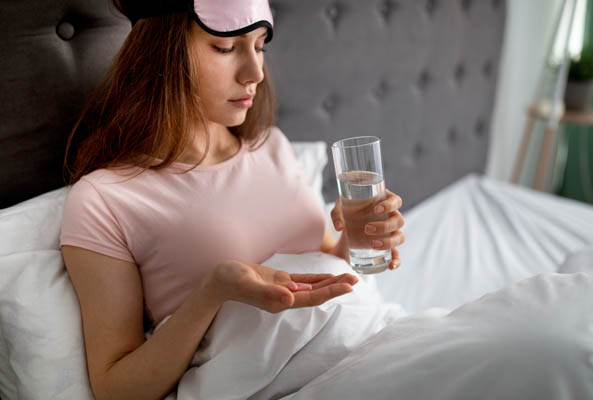Frequently Asked Questions: Dental Sleep Medicine

Dental sleep medicine can help with snoring and obstructive sleep apnea, which are two common sleep problems. Snoring is one of the primary symptoms of obstructive sleep apnea, but not everyone who snores has it. However, snoring alone can cause problems for individuals and their sleep partners by interrupting sleep. While the Continuous Positive Airway Pressure machine is an effective treatment for obstructive sleep apnea and snoring, other treatment options exist.
Dental sleep medicine
Dental sleep medicine is dentistry that treats snoring and obstructive sleep apnea. It offers patients an alternative to CPAP machines. Dentists create customized mouth appliances that patients wear during sleep. These appliances support the jaw in a position that prevents the patient's airway from collapsing during sleep. This type of continuous jaw support can prevent snoring and help relieve sleep apnea, so patients rest better.
What is a dental sleep medicine appliance?
The customized mouth appliances dentists make for patients with snoring or sleep apnea issues resemble the custom mouth guards that athletes wear while playing sports. When not in use, the appliances fit into a case so that they are easy to take along during travel.
How do dentists make dental sleep medicine appliances?
To make the mouth appliances, dentists perform a dental exam and may take X-rays. Technicians then create impressions of the patient's teeth. These impressions go to a laboratory where technicians use them to create an appliance designed to fit the patient's mouth exactly. When the dentist receives the completed appliance from the laboratory, the patient comes in for a fitting. The dentist may then make minor adjustments to the appliance and will teach the patient how to clean and care for it.
Can the appliance replace a patient's CPAP machine?
Patients who have mild or moderate sleep apnea may find they no longer need their CPAP machine during sleep once they start using their dental appliance. The portability and convenience of the appliance appeal to many patients, and they may find themselves more likely to comply with instructions for its use than with their CPAP machine.
What advantages do dental sleep medicine appliances have?
CPAP machines consist of a mask that covers the mouth and nose and tubing connecting the mask to the machine itself, which is roughly the size of a shoebox. Patients must plug their CPAP machine into an electrical outlet for it to function.
By contrast, dental sleep appliances have no mask or tubing and fit inside the mouth, with no external parts. Because of the appliance's convenience and portability, many patients are more likely to use their dental appliance than a CPAP machine. Better treatment compliance may result in better relief from snoring and sleep apnea.
Conclusion
Snoring and sleep apnea can affect a person's sleep quality and quality of life. The sleeping partners of snorers and people with sleep apnea may find their own sleep quality affected as well. Dental sleep medicine helps people address snoring and sleep apnea in a way that is less obtrusive and inconvenient than a CPAP machine and can help improve the quality of life for these patients and their partners.
Request an appointment here: https://608familydental.com or call 608 Family Dental at (608) 713-9418 for an appointment in our Sun Prairie office.
Check out what others are saying about our services on Yelp: Sleep Medicine in Sun Prairie, WI.
Related Posts
Worried about tooth extractions? Read on to learn more about this procedure and its aftermath. A tooth extraction is sometimes necessary for oral health but it can change your smile significantly. Beyond the immediate relief from pain or infection, the absence of a tooth leads to new considerations regarding dental aesthetics and function.If a tooth…
There are two types of tooth extractions: simple and surgical. Simple extractions are for teeth that are entirely exposed and can be accessed above the gumline. Surgical extractions require an incision into the gumline or connective tissue. The type a patient needs depends on the cause and state of the tooth. Here are six reasons…
An emergency dentist can provide tooth-saving care in emergency dental situations. However, it is common not to know what constitutes a dental emergency nor how to handle common situations while waiting for dental care. Understanding when to seek help from an emergency dentist and how to manage the situation before you get to their office…
Your dentist can suggest a tooth extraction. A thorough assessment can help determine if you need this procedure. The facts can help prepare you for your oral surgery. Here are the details on when a tooth extraction may be necessary.Periodontal disease is an infection of the structures that surround the teeth. Studies show that the…
